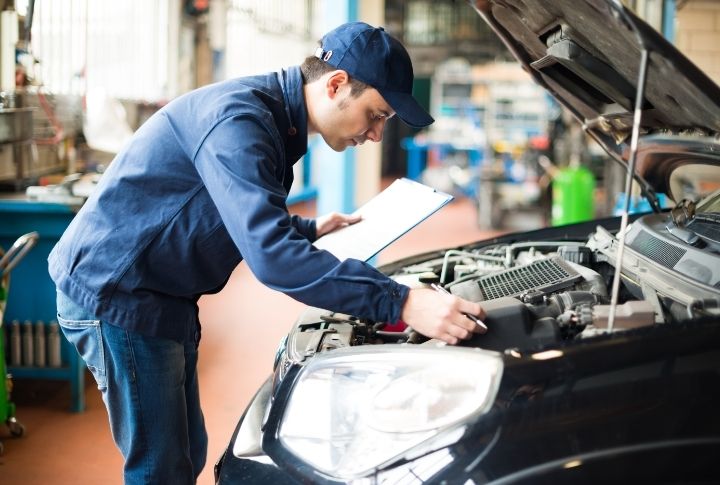
15 Ways To Keep Your Engine Going For Years

About two million engines require major service annually, needing repair, rebuilding, or worse, replacement. Keeping your car’s engine in peak condition can save you time, money, and stress. While most drivers know the basics, a few extra steps will make all the change. Check out these 15 tips to help maintain your motor’s health and keep your vehicle running for long.
Regular Oil Checks and Changes

Engine oil lubricates the engine’s moving parts to reduce friction, prevent overheating, and keep everything running smoothly. Using the same oil repeatedly gets dirty and thick, and your engine may wear out faster. Most manufacturers recommend changing it every 5,000-7,000 miles or so, but check your car’s manual for the exact interval.
Check Coolant Levels

Regularly checking coolant levels is important to prevent engine overheating, damage, and failure. Since the coolant absorbs heat and maintains engine temperature, your car’s engine may overheat if the levels drop. Neglecting coolant maintenance can lead to engine damage, corrosion, and even complete failure. Automotive experts recommend that drivers check coolant levels every 3-6 months.
Use High-Quality Oil and Filters

Good oil lubricates engine components while filters remove contaminants. Likewise, high-quality oil and filters ensure your car’s engine lives out its lifespan. If you don’t use quality oil and filters, your engine may suffer damage, overheating, and premature wear. Replace oil and filters every 5,000-7,500 miles or as your vehicle’s manufacturer recommends.
Change Spark Plugs Regularly

Worn-out spark plugs reduce fuel efficiency, causing misfires and engine damage. If neglected, spark plugs can fail and lead to costly repairs, decreased power, and potentially even engine failure. Fresh spark plugs ensure proper combustion, improved fuel efficiency, and a smooth-running engine. Change your spark plugs every 30,000-100,000 miles or as your vehicle’s manufacturer recommends.
Vary Engine RPM

An engine’s lifespan is measured in revolutions. Varying RPMs simply means changing engine speed by adjusting the throttle to keep energy output at different speed levels. Driving at constant RPMs can lead to engine fatigue; varying RPMs prevent carbon deposits from building up from inefficient fuel burning. It also reduces the risk of engine knock and increases engine efficiency.
Monitor Belts and Hoses

The danger in ignoring cracked or worn-out belts is that your engine may fail whenever they snap. Likewise, brittle or leaking hoses cause overheating, which is bad for your car. Inspect your car’s belts and hoses for signs of wear or cracks to prevent unexpected breakdowns. Then, replace them at the recommended interval or sooner if needed.
Check for Leaks

Leaks can occur in the engine oil compartment, coolant, transmission, brakes, and fuel tank. As precursors to engine failure, they can lead to reduced performance and overheating. When inspecting your car for leaks, look for signs like puddles, stains, unusual odors, and warning lights. If there are any, have them repaired promptly by a qualified mechanic.
Keep the Engine Clean

While dirty engines are less efficient due to increased emissions, a well-maintained one runs smoother and uses less fuel. For your engine to work well throughout its lifespan, it is important to keep it clean. Regularly wash your engine with a gentle cleaner while brushing away dirt and debris.
Regularly Inspect Battery and Terminals

To avoid unexpected breakdowns, check the battery terminals for corrosion, cleanse them with a wire brush if needed, and ensure tight connections. You can also check the battery for wear or damage. When the battery and its terminals are in good condition, you won’t need to deal with electrical issues or jump-start your car every few days.
Maintain Optimal Engine Temperature

A well-maintained cooling system will have your engine running smoothly, prevent overheating, and reduce frequent repairs. One of the best ways to avoid frequenting the mechanic shop is to maintain the optimal engine temperature between 195°F and 220°F (90°C to 104°C). Also, warming the engine daily prolongs its lifespan, especially on cold days and when you aren’t driving.
Follow-Up When Warning Lights Come On

Warning lights on your dashboard are your car’s way of communicating with you. They’re a cry for help, so don’t ignore them when they come on. Check your owner’s manual to understand each light’s meaning and promptly address the issue. Remember to respond early, and your motor will stay in good condition for a long time.
Check On Your Gas Tank

Running on fumes can damage the fuel pump and cause engine stalling. You may even get stranded at the worst time and place. To make this tip a habit takes dedicated effort, considering the hassle of refilling—especially when you’re running late. However, keeping your gas tank at least half full ensures your engine doesn’t give out.
Use The Correct Fuel For Your Vehicle

Whether your car uses regular, mid-grade, premium, or diesel fuel, knowing the right option is essential. Using the wrong fuel is a one-way ticket to replacing your engine. It could corrode the fuel system and clog the fuel injector. On the other hand, using the recommended fuel type ensures optimal performance, protects your engine, and saves you money.
Avoid Start-Stop Driving and Frequent Short Trip

Heavy traffic and repeated short trips under 5 miles are bad for engine health. They often wear out engine components, reduce fuel efficiency, and cause higher emissions. It’s best to avoid all kinds of start-stop driving to prolong its lifespan. Also, planning your trips better can reduce engine stress while improving fuel efficiency.
Follow the Maintenance Schedule

Regular engine maintenance keeps your car’s overall health at the maximum level and avoids frequent damages and knocks. Ideally, aim to service your vehicle every 3-6 months, depending on usage, so that you can stay on top of things regarding repairs or faults. You can also follow the manufacturer’s or mechanic’s recommended schedule.


